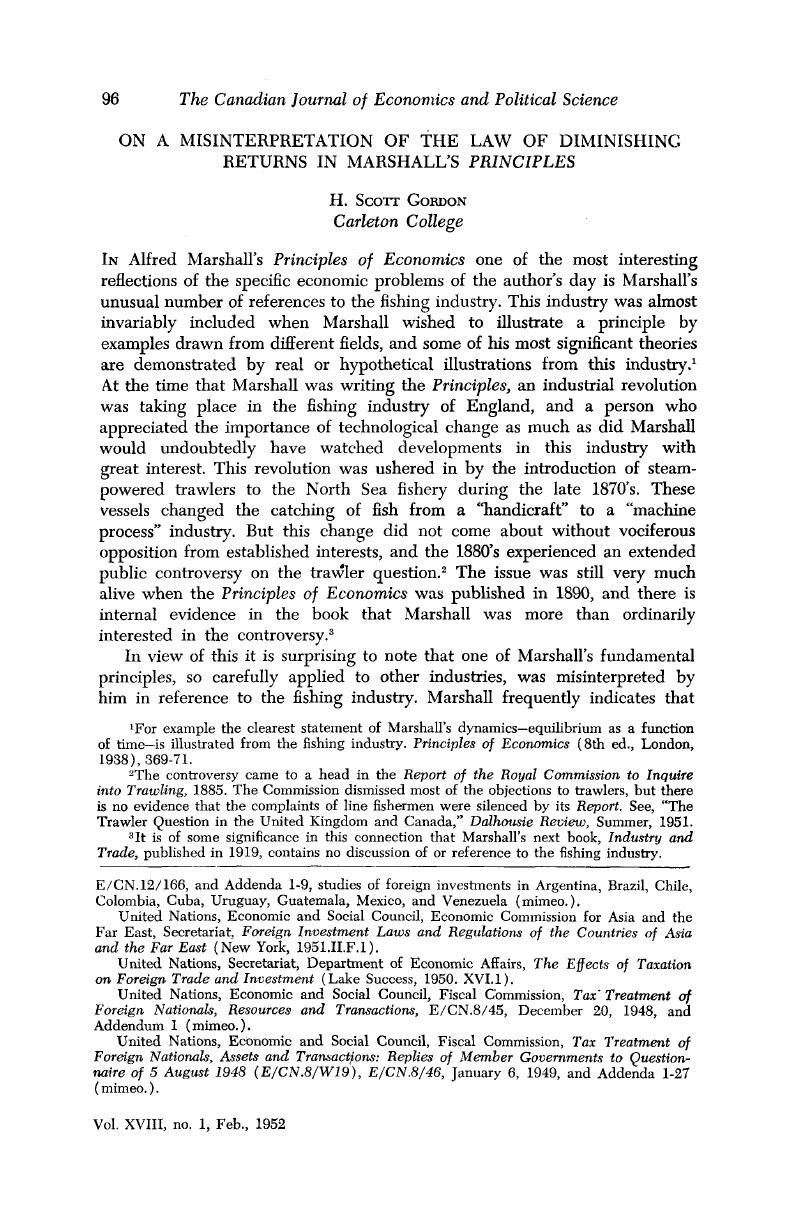Article contents
On a Misinterpretation of the Law of Diminishing Returns in Marshall's Principles
Published online by Cambridge University Press: 07 November 2014
Abstract

- Type
- Notes and Memoranda
- Information
- Canadian Journal of Economics and Political Science/Revue canadienne de economiques et science politique , Volume 18 , Issue 1 , February 1952 , pp. 96 - 98
- Copyright
- Copyright © Canadian Political Science Association 1952
References
1 For example the clearest statement of Marshall's dynamics—equilibrium as a function of time—is illustrated from the fishing industry. Principles of Economics (8th ed., London, 1938), 369–71.Google Scholar
2 The controversy came to a head in the Report of the Royal Commission to Inquire into Trawling, 1885. The Commission dismissed most of the objections to trawlers, but there is no evidence that the complaints of line fishermen were silenced by its Report. See, “The Trawler Question in the United Kingdom and Canada,” Dalhousie Review, Summer, 1951.Google Scholar
3 It is of some significance in this connection that Marshall's next book, Industry and Trade, published in 1919, contains no discussion of or reference to the fishing industry.
4 See, e.g. Principles, Bk. IV, chap. III.
5 Principles, 166 (italics mine). See also pp. 370–1 for another passage embodying the same interpretation.
- 4
- Cited by


